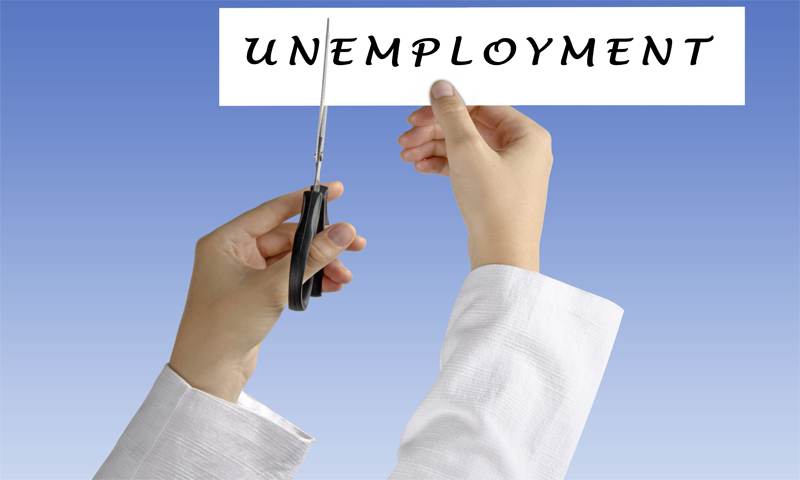

|
| Harrison Barnes |
As I currently approach my 4th month of unemployment after being laid off from a major firm, I am wondering if there is anything I can do to increase my marketability to law firms? I cannot change my past work experience or my law school credentials, obviously, but is there something else I could do that I am overlooking?
Being out of work is frustrating, for sure, and the feeling that there is nothing you can do to change your current situation probably increases your stress level exponentially. As you said, what's done is done, and you have to focus on the future. We have seen far too many attorneys literally give up on the practice of law entirely after getting laid off during their first few months of practice. In the past several months we have seen attorneys who graduated from Top 25 law schools and worked for a few months at AmLaw 100 law firms before getting laid off become (1) a restaurant hostess, (2) a garbage man, (3) a salesperson in a men's boutique clothing store and (4) a trainee assistant manager of a Pizza store. Nothing is wrong with any of these occupations; however, if these choices were motivated by the perception that no attorney jobs were available, these occupational choices were wrong. More often than not, the attorneys who give up are those coming from the largest and most prestigious firms. Their thoughts run something like "If I cannot practice at a very high level, I do not want to practice at all." We believe this thinking is severely flawed because, as this article will demonstrate, you can find another job if you approach your search in the right manner.
First, you need to think geographically. You are currently living in the worst market in the country. Barring circumstances that tie you to the Seattle region indefinitely, a move to a healthier marketplace will provide you with more available opportunities, which will give you more opportunities for success. One of the strangest phenomena we have ever witnessed is talented attorneys who give up on the practice of law because they refuse to move. Detroit, Michigan used to be one of the largest legal markets in the United States several decades ago and, by today's standards, there are fewer than 10 large law firms there. If attorneys continued to stay there instead of following the jobs, their chances for employment would be significantly reduced. While the change from an industrial-based to an information-based economy is certainly beyond the scope of this article, the fact of the matter is that certain legal markets simply contract at various points in time. Many of these markets never return to their former glory. Who knows if Silicon Valley or Seattle, for that matter, will ever be what they once were. The point is you should not let geography influence your future. You went to law school for a reason and your current geographic location should not be something that you let influence the next 25-plus years of your life.
There are tens of thousands of law firms throughout the United States and the idea that one of them does not have a job waiting for you is an absurd thought. Unfortunately, far too many attorneys accept this thought. Does this really make sense to you? If you have been practicing long enough for a legal recruiter to represent you (usually one year), then you should contact one and let them help you in your search. If not, you should find a way to apply to as many of these law firms as quickly as possible in order to increase your chances of getting hired. While job boards do not traditionally have advertisements for entry level attorneys, you should review as many potential openings as possible. In addition, you should investigate using a service such as Legal Authority to try to apply for positions in your existing market or other markets that interest you. It is extremely unlikely that you will not find a position with an aggressive approach.
Second, if you are just considering the largest, most prestigious firms, you may have to aim a little lower. While we most likely would not have said this in the heyday of the economic boom, at a time when many large firms are severely restricting their hiring, it may make sense for you to consider taking a position at a less prestigious firm. You may come across a smaller firm that might actually be in "growth mode," unlike larger firms in the area that are experiencing financial troubles. While we are not advocating working somewhere that you regard as beneath you, giving smaller-to-midsize firms a chance should not necessarily be considered settling. When the economy does recover, your resume will look a lot better for having worked somewhere than if you were to be unemployed for a few years. It is possible that you will like the different atmosphere of a smaller firm, and perhaps your experience and know-how can even help that firm grow.
Third, you may be able to find immediate employment with the government. Clerkships, often seen as the domain of newly-minted attorneys, can increase any attorney's marketability. More law students are likely to search for a clerkship as first-year associate hiring dwindles, so the competition may be tough, but your experience may impress a judge enough to take you on. Not only will you be working, but you will be learning more about the justice system which can only help when the clerkship ends and you want to seek out a law firm opportunity. In addition, you may be able to locate an opportunity in a local prosecutor's office. In any of these jobs, you will begin to develop the skills of an attorney that you do not necessarily learn during law school.
Fourth, your law school record may be etched in stone, but there is always the opportunity to go back to school and further your education. While LL.M degrees are not for everyone, they have proven to be an asset to some attorneys who can get them in the right areas and at the right schools, especially for those with somewhat unimpressive law school records. Similarly, for intellectual property attorneys, getting an advanced degree in engineering or even one of the natural sciences could help your cause.
In conclusion, while none of these methods are guaranteed to get you a job, anything is worth a shot in dire times. The economy will recover, as it always does, and when that happens, it will be better to have built up some experience and improved your resume than to have sat back and ridden it out. The holy grail of many firm lawyers is partnership at a large firm, and the best way to obtain that is by proving yourself consistently throughout your career, no matter what roadblocks stand in your way.
Click here to contact Harrison
About Harrison Barnes
No legal recruiter in the United States has placed more attorneys at top law firms across every practice area than Harrison Barnes. His unmatched expertise, industry connections, and proven placement strategies have made him the most influential legal career advisor for attorneys seeking success in Big Law, elite boutiques, mid-sized firms, small firms, firms in the largest and smallest markets, and in over 350 separate practice areas.
A Reach Unlike Any Other Legal Recruiter
Most legal recruiters focus only on placing attorneys in large markets or specific practice areas, but Harrison places attorneys at all levels, in all practice areas, and in all locations-from the most prestigious firms in New York, Los Angeles, and Washington, D.C., to small and mid-sized firms in rural markets. Every week, he successfully places attorneys not only in high-demand practice areas like corporate and litigation but also in niche and less commonly recruited areas such as:
- Immigration Law
- Workers Compensation
- Insurance
- Family Law
- Trust and Estate
- Municipal law
- And many more...
This breadth of placements is unheard of in the legal recruiting industry and is a testament to his extraordinary ability to connect attorneys with the right firms, regardless of market size or practice area.
Proven Success at All Levels
With over 25 years of experience, Harrison has successfully placed attorneys at over 1,000 law firms, including:
- Top Am Law 100 firms such including Sullivan and Cromwell, and almost every AmLaw 100 and AmLaw 200 law firm.
- Elite boutique firms with specialized practices
- Mid-sized firms looking to expand their practice areas
- Growing firms in small and rural markets
He has also placed hundreds of law firm partners and has worked on firm and practice area mergers, helping law firms strategically grow their teams.
Unmatched Commitment to Attorney Success - The Story of BCG Attorney Search
Harrison Barnes is not just the most effective legal recruiter in the country, he is also the founder of BCG Attorney Search, a recruiting powerhouse that has helped thousands of attorneys transform their careers. His vision for BCG goes beyond just job placement; it is built on a mission to provide attorneys with opportunities they would never have access to otherwise. Unlike traditional recruiting firms, BCG Attorney Search operates as a career partner, not just a placement service. The firm's unparalleled resources, including a team of over 150 employees, enable it to offer customized job searches, direct outreach to firms, and market intelligence that no other legal recruiting service provides. Attorneys working with Harrison and BCG gain access to hidden opportunities, real-time insights on firm hiring trends, and guidance from a team that truly understands the legal market. You can read more about how BCG Attorney Search revolutionizes legal recruiting here: The Story of BCG Attorney Search and What We Do for You.
The Most Trusted Career Advisor for Attorneys
Harrison's legal career insights are the most widely followed in the profession.
- His articles on BCG Search alone are read by over 150,000 attorneys per month, making his guidance the most sought-after in the legal field. Read his latest insights here.
- He has conducted hundreds of hours of career development webinars, available here: Harrison Barnes Webinar Replays.
- His placement success is unmatched-see examples here: Harrison Barnes' Attorney Placements.
- He has created numerous comprehensive career development courses, including BigLaw Breakthrough, designed to help attorneys land positions at elite law firms.
Submit Your Resume to Work with Harrison Barnes
If you are serious about advancing your legal career and want access to the most sought-after law firm opportunities, Harrison Barnes is the most powerful recruiter to have on your side.
Submit your resume today to start working with him: Submit Resume Here
With an unmatched track record of success, a vast team of over 150 dedicated employees, and a reach into every market and practice area, Harrison Barnes is the recruiter who makes career transformations happen and has the talent and resources behind him to make this happen.
A Relentless Commitment to Attorney Success
Unlike most recruiters who work with only a narrow subset of attorneys, Harrison Barnes works with lawyers at all stages of their careers, from junior associates to senior partners, in every practice area imaginable. His placements are not limited to only those with "elite" credentials-he has helped thousands of attorneys, including those who thought it was impossible to move firms, find their next great opportunity.
Harrison's work is backed by a team of over 150 professionals who work around the clock to uncover hidden job opportunities at law firms across the country. His team:
- Finds and creates job openings that aren't publicly listed, giving attorneys access to exclusive opportunities.
- Works closely with candidates to ensure their resumes and applications stand out.
- Provides ongoing guidance and career coaching to help attorneys navigate interviews, negotiations, and transitions successfully.
This level of dedicated support is unmatched in the legal recruiting industry.
A Legal Recruiter Who Changes Lives
Harrison believes that every attorney-no matter their background, law school, or previous experience-has the potential to find success in the right law firm environment. Many attorneys come to him feeling stuck in their careers, underpaid, or unsure of their next steps. Through his unique ability to identify the right opportunities, he helps attorneys transform their careers in ways they never thought possible.
He has worked with:
- Attorneys making below-market salaries who went on to double or triple their earnings at new firms.
- Senior attorneys who believed they were "too experienced" to make a move and found better roles with firms eager for their expertise.
- Attorneys in small or remote markets who assumed they had no options-only to be placed at strong firms they never knew existed.
- Partners looking for a better platform or more autonomy who successfully transitioned to firms where they could grow their practice.
For attorneys who think their options are limited, Harrison Barnes has proven time and time again that opportunities exist-often in places they never expected.
Submit Your Resume Today - Start Your Career Transformation
If you want to explore new career opportunities, Harrison Barnes and BCG Attorney Search are your best resources. Whether you are looking for a BigLaw position, a boutique firm, or a move to a better work environment, Harrison's expertise will help you take control of your future.
Submit Your Resume Here to get started with Harrison Barnes today.
Harrison's reach, experience, and proven results make him the best legal recruiter in the industry. Don't settle for an average recruiter-work with the one who has changed the careers of thousands of attorneys and can do the same for you.
About BCG Attorney Search
BCG Attorney Search matches attorneys and law firms with unparalleled expertise and drive, while achieving results. Known globally for its success in locating and placing attorneys in law firms of all sizes, BCG Attorney Search has placed thousands of attorneys in law firms in thousands of different law firms around the country. Unlike other legal placement firms, BCG Attorney Search brings massive resources of over 150 employees to its placement efforts locating positions and opportunities its competitors simply cannot. Every legal recruiter at BCG Attorney Search is a former successful attorney who attended a top law school, worked in top law firms and brought massive drive and commitment to their work. BCG Attorney Search legal recruiters take your legal career seriously and understand attorneys. For more information, please visit www.BCGSearch.com.
Harrison Barnes does a weekly free webinar with live Q&A for attorneys and law students each Wednesday at 10:00 am PST. You can attend anonymously and ask questions about your career, this article, or any other legal career-related topics. You can sign up for the weekly webinar here: Register on Zoom
Harrison also does a weekly free webinar with live Q&A for law firms, companies, and others who hire attorneys each Wednesday at 10:00 am PST. You can sign up for the weekly webinar here: Register on Zoom
You can browse a list of past webinars here: Webinar Replays
You can also listen to Harrison Barnes Podcasts here: Attorney Career Advice Podcasts
You can also read Harrison Barnes' articles and books here: Harrison's Perspectives
Harrison Barnes is the legal profession's mentor and may be the only person in your legal career who will tell you why you are not reaching your full potential and what you really need to do to grow as an attorney--regardless of how much it hurts. If you prefer truth to stagnation, growth to comfort, and actionable ideas instead of fluffy concepts, you and Harrison will get along just fine. If, however, you want to stay where you are, talk about your past successes, and feel comfortable, Harrison is not for you.
Truly great mentors are like parents, doctors, therapists, spiritual figures, and others because in order to help you they need to expose you to pain and expose your weaknesses. But suppose you act on the advice and pain created by a mentor. In that case, you will become better: a better attorney, better employees, a better boss, know where you are going, and appreciate where you have been--you will hopefully also become a happier and better person. As you learn from Harrison, he hopes he will become your mentor.
To read more career and life advice articles visit Harrison's personal blog.





